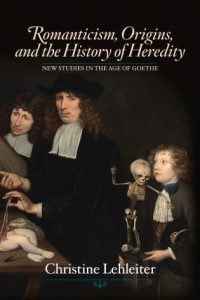
Since it debuted, Bucknell University Press’s book series New Studies in the “Age of Goethe” has been receiving critics’ attention and readers’ praises. The series, sponsored by the Goethe Society of North America, aims to encourage and publish innovative research that adopts interdisciplinary approaches or provides new insights on the “Age of Goethe.” Current books in the series include Romanticism, Origins, and the History of Heredity (2014) by Christine Lehleiter, Aesthetics as Secular Millenialism: Its Trail from Baumgarten and Kant to Walt Disney and Hitler (2013) by Benjamin Bennett, The Mask and the Quill: Actress-Writers in Germany from Enlightenment to Romanticism (2011) by Mary Helen Dupree, After Jena: Goethe’s Elective Affinities and the End of the Old Regime (2010) by Peter J. Schwartz and Reading Riddles: Rhetorics of Obscurity from Romanticism to Freud (2010) by Brian Tucker. Professor Joycelyn Holland of University of California-Santa Barbara highly praised Lehleiter’s Romanticism, Origins, and the History of Heredity, saying that “(Lehleiter’s) work has the potential to change the landscape of Romantic literary studies.” Dupree’s book The Mask and the Quill is also recognized by critics. “The Mask and the Quill is an important contribution to German studies, gender studies, and performance studies”, said Professor Lena Heilmann, who is currently teaching at Knox College.
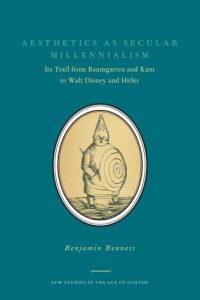
Great books cannot be published without great editors. Speaking about her experience with New Studies in the “Age of Goethe,” Professor Karin Schutjer, the current series editor, acknowledges the collective wisdom and experience of the editorial group. “It’s gratifying to be part of it,” she says.
In fact, the birth and success of New Studies in the “Age of Goethe” are inseparable from the Goethe Society of North America. The books series was founded in 2006 by Professor Astrida Tantillo, who was the Executive Secretary of the organization at that time. It is an active society that has a group of scholars who are enthusiastic about new research and are willing to foster innovative projects. Professor Schutjer describes that “the society mentors young scholars from the dissertation stage, provides conference opportunities, a scholarly yearbook, and article prizes. The monograph series is able to draw on this fabulous network of established and emerging scholars.”
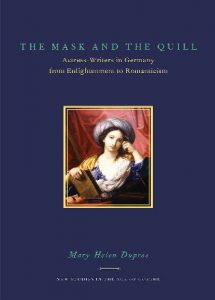
Professor Schutjer is interested in German history and her recent book concerns Goethe’s relationship to Judaism. As she recalls, her first touch with German studies in college was to “try to understand the catastrophic course of German history in the 20th century (how, for example, we got from Goethe to the Holocaust) and then to explore the remarkable processes through which Germany has redefined itself since then.” Historical events and significant figures are always correlated, and in order to understand Germany in the 20th century and Germany today, it is important to understand those influential German intellectuals such as Goethe. When asked about her understanding of “the Age of Goethe,” professor Schutjer shows great passion in her profession and depicts a grand picture of German culture at that time. “It was the age of Kant, Hegel, Mozart, Beethoven, and so many other pathbreaking artists, writers, and intellectuals. And in the midst of it all was Goethe, who not only became the defining German poet, but also had his hands in so many other fields of inquiry and endeavor, including science (botany, anatomy, optics, geology), art and architecture, dramaturgy, philology, public administration and statecraft.” Thanks to the richness of this era, it is not surprising that, after so many years of scholarly research, there are still numerous innovative projects such as the books in this series and we look forward to forthcoming research to unveil the “Age of Goethe” from an angle we haven’t examined before.
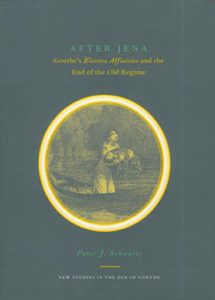
Below is the full interview with Professor Karin Schutjer.
What’s the inspiration for this book series?
The book series was founded in 2006 by Professor Astrida Tantillo, who served at the time the Executive Secretary of the Goethe Society of North America. North American scholarship in the Age of Goethe is a remarkably vibrant and innovative field. Her vision was simply to establish a leading publishing venue for the best new work in the field.
What do you enjoy most about your involvement with this series?
That’s an easy one! Our two previous editors, Astrida Tantillo and Jane Brown, developed a very collaborative editorial process. All proposals are carefully read and discussed by our small board, which fortunately still includes both Astrida and Jane. I feel there is a great deal of collective wisdom and experience in this group, and that we are very directed towards finding and developing the potential in projects. It’s gratifying to be part of it.
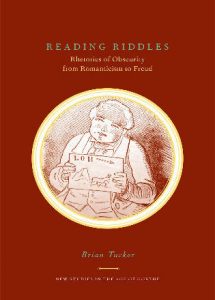
As we all know, Goethe is the most renowned figure in German culture both within and beyond his time. How do you understand the Age of Goethe?
The Age of Goethe is loosely defined as 1770-1830, the six decades of Goethe’s greatest productivity. But in a more important sense this period really represents Germany’s passage into modernity. This era spans huge transformations, from the rule of Frederick the Great through the Revolutionary Wars and the dissolution of the Holy Roman Empire, to the reactionary post-Napoleonic order. It saw the flourishing of Enlightenment thought and the emergence of Romanticism and German nationalism. It was the age of Kant, Hegel, Mozart, Beethoven, and so many other pathbreaking artists, writers, and intellectuals. And in the midst of it all was Goethe, who not only became the defining German poet, but also had his hands in so many other fields of inquiry and endeavor, including science (botany, anatomy, optics, geology), art and architecture, dramaturgy, philology, public administration and statecraft. You can imagine what a rich field this is for interdisciplinary explorations.
What are the notable features of this book series that differentiate it from other scholarly publications on Goethe and German culture in a broad context?
What sets this series apart is its clear epochal focus backed up by the expertise and resources of an extremely active and innovative scholarly society, the Goethe Society of North America. The society mentors young scholars from the dissertation stage, provides conference opportunities, a scholarly yearbook, and article prizes. The monograph series is able to draw on this fabulous network of established and emerging scholars.
What is your expectation for future publications in this book series?
We have several interesting proposals in the works and we’ll see where the field takes us next! I think we’ll continue to see a broad range of topics and approaches because that really reflects the diversity of contemporary scholarship in the Age of Goethe.
What motivates to be a scholar in German studies? What are your academic interests?
I can’t speak for all North American German studies scholars, but I think many people in my generation were probably moved, maybe first as undergraduates, to try to understand the catastrophic course of German history in the 20th century (how, for example, we got from Goethe to the Holocaust) and then to explore the remarkable processes through which Germany has redefined itself since then. My own work is still somewhat shaped by those big questions about German history: my recent book concerned Goethe’s relationship to Judaism.